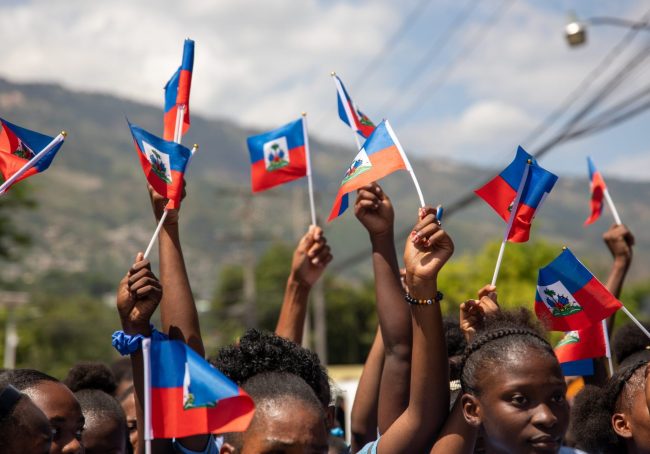Un podcast BSA Akò Montana
avèk
Laura Louis
- 8 tèm
- -
- 8 emisyon

The August 30th, 2021 Agreement, commonly called Montana Accord, is a movement that is first to trace the path towards a Haitian Solution to the profound crisis that Haiti has been undergoing since July 2018.
English version of the Montana Accord
The Commission to Search for a Haitian Solution to the Crisis – CRSHC – was created on March 6, 2021 at the initiative of many committed civil society organizations during a Civil Society Forum. These organizations adopted a resolution on January 30 calling on civil society to play a more active role as an actor rather than a spectator in the multidimensional crisis that has afflicted Haiti since the youth rebellion in July 2018.
Characterizing this major structural crisis in Haiti are persistent inequalities, and serious gaps in governance. This includes its failure to provide social, justice and security services to its population and its corruption and association with criminal elements.
A follow-up committee was set up by the Civil Society Forum to monitor activities, including the establishment of the commission, and the establishment and maintenance of regular contacts with different national entities, including the political, private, religious sectors. and others, as well as with the international community. The Commission held its first meeting on March 6 and established its modest headquarters in the capital.
The Commission has 13 members, namely ten representatives of various civil society organizations and three personalities known for their commitment and integrity. Collectively, the members of the commission represent sectors responsible for mobilizing tens of thousands of citizens since 2018.
The ten organizations are the Platform of Feminists, the Platform of Haitian Human Rights Organizations, the Protestant Federation of Haiti, the Episcopal Church, the Federation of Bar Associations of Haiti, Alovi Dahomey for the Voodoo sector, Katan for the cultural sector, the Union for the Respect of the Constitution bringing together several unions, the Forum for Peace and Diaspora Dialogue, and the 4G Platform made up of four of the largest peasant associations in Haiti. Five women participate in this peace and conflict resolution initiative, constituting over a third (38%) of its members.
The Commission had a double objective. The first is to articulate a national position – that is, one that reflects the position of society in its various components – regarding the elements of the crisis and the necessary changes to which the country aspires.The second objective is to find a political agreement between committed civil society and political actors, for a way out of the crisis and the establishment of elements of change that meet the aspirations and needs of the majorities.A solution to the Haitian-led crisis is imperative, and a key part of that solution must be transformative change, as demanded by the people for the past years since the 2018 rebellion.
The CRSHC worked during five months to collect information on different attempts to find a solution, and to listen to and analyze the positions and proposals of the most diverse sectors of society, both in the political world and in civil society. This included the popular organized sector and many associations, organizations and personalities of the diaspora. It sought to identify a national consensus — the lowest common denominators that all sectors could agree on. The Commission also took into account the demands expressed during the many popular demonstrations that have taken place across the cities of the country since 2018. It also met with certain international institutions.
On this basis, the CRSHC formulated a proposal that embodies a national narrative of sovereignty as well as the Haitian solution: the proposal of an agreement, which was the realization of its mission. Prior to the presentation of the Agreement, the Commission organized several mini-workshops in the form of a national conference in order to confirm the consensus and make choices on the proposed Agreement. Finally, on August 30, 2021, the Commission presented the Agreement known as the August 30, 2021 Agreement before the nation for signature. Since then, it has been known mainly as Ako Montana, because of the hotel where it received its first memberships. Since then, the Montana Agreement has collected nearly 1,000 signatures, from individuals, political parties and organizations.
What you should know about the agreement and its authorities
avèk